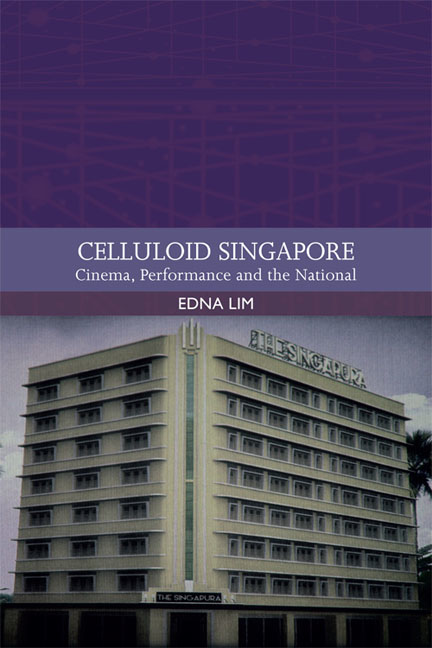Book contents
- Frontmatter
- Contents
- List of Figures
- Acknowledgements
- Traditions in World Cinema
- 1 Introduction
- 2 Merdeka!: Merger, Separation and a Transnational Golden Age
- 3 Influence, Hybridity and How the Past is a Foreign Country
- 4 Nation-building, a Nun and a Bionic Boy
- 5 Not so Foreign: the Case of Saint Jack
- 6 One People, One Nation, One Singapore
- 7 Revival Cinema: ‘Other’ Singaporeans in (An)other Singapore
- 8 Singapore Cinema in Singapore
- Works Cited
- Index
6 - One People, One Nation, One Singapore
Published online by Cambridge University Press: 11 November 2020
- Frontmatter
- Contents
- List of Figures
- Acknowledgements
- Traditions in World Cinema
- 1 Introduction
- 2 Merdeka!: Merger, Separation and a Transnational Golden Age
- 3 Influence, Hybridity and How the Past is a Foreign Country
- 4 Nation-building, a Nun and a Bionic Boy
- 5 Not so Foreign: the Case of Saint Jack
- 6 One People, One Nation, One Singapore
- 7 Revival Cinema: ‘Other’ Singaporeans in (An)other Singapore
- 8 Singapore Cinema in Singapore
- Works Cited
- Index
Summary
NATIONAL IDENTITY
As a result of the state's focus on rapid industrialisation and urbanisation, Singapore was, by the 1980s, considered by many to be an economic miracle that enjoyed massive growth and stability. By then, it was clear that Singapore had not only survived expulsion from Malaysia but thrived. Economic success created a ‘substantial injection of self-definition and national pride’ in Singapore. However, there remained the continued perceived threat of ‘Westernisation’ and the erosion of Asian values, the danger that Singapore was turning into a ‘pseudo-Western society’ that emphasised individualism and personal freedom, indulged in sexual pleasures and lacked a sense of responsibility to family and society. Furthermore, in this climate of prosperity and rising affluence, the rhetoric of survival that was used to mobilise and unite the people was no longer sufficient or compelling on its own. New imperatives were needed to mould a singular national identity. This ‘motivational entropy’ led to a series of state-driven policies to ‘inject the requisite values into its citizens’ and reassert the PAP's political legitimacy by proclaiming ‘its version of the nation and to rally Singapore behind it.’ The state turned towards ‘Asia’ for those requisite values to serve as cultural ballast, beginning with the bilingual education policy requiring students to acquire a Second Language (or Mother Tongue) based on their racial identity. In 1981, the existing civics curriculum was replaced by a moral education programme aimed at producing ‘good, useful and loyal citizens through inculcation of the desired moral values and social attitudes’. An English-language programme, Being and Becoming, was launched in primary schools along with a Chinese-language syllabus known as Hao Gong Ming (Good Citizen). Religious Knowledge was introduced in secondary schools in 1982, and became a compulsory subject for Secondary Three and Four students in 1984. Implementation emphasised ‘knowledge’, not religious instruction, and the options included Bible knowledge, Buddhist and Hindu studies, Islamic religious knowledge and, later, Confucian values. This subject was replaced in 1989 by another civics programme, and the PAP government under the new leadership of Prime Minister Goh Chok Tong configured a set of ‘Shared Values’ that would become Singapore's National Ideology to counter that ever-present evil of Westernisation and its attendant individualistic ethos.
- Type
- Chapter
- Information
- Celluloid SingaporeCinema, Performance and the National, pp. 119 - 138Publisher: Edinburgh University PressPrint publication year: 2018



